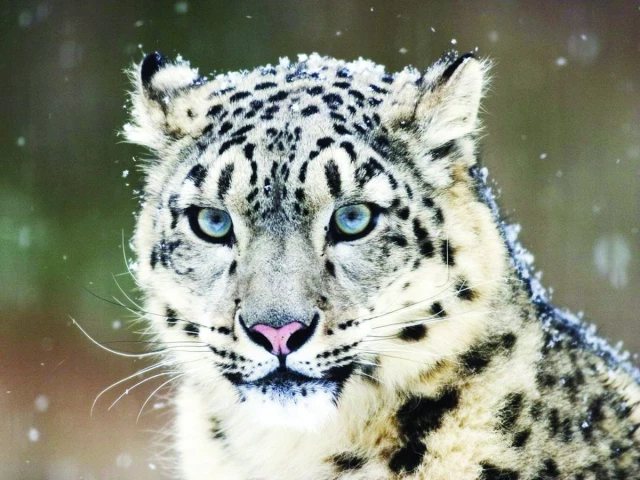Islamabad:
In a revolutionary moment for the conservation of fauna, Pakistan unveiled its very first scientific estimate of the population of snow leopards, 167 individuals, placing the country to number four in the world among the nations of the range of snow leopards. This marks an important step in environmental and conservation efforts in Pakistan.
The announcement was made during the Pakistan Wildlife Protection Awards 2025, organized by the Snow Leopard Foundation in collaboration with the Ministry of Climate Change and Environmental Coordination (MOCC & EC).
The ceremony also presented the projection of a documentary entitled “Beyond Borders – The Heartat of Chitral Rangers”, presenting the harsh realities and sacrifices of those who work in distant and high altitude grounds to protect the natural heritage of Pakistan.
Snow Leopard Foundation and MOCC & EC have reaffirmed their commitment to advance conservation research and to expand protection efforts against snow leopards and other endangered species in Pakistan.
Neiges leopards are faced with growing threats to habitat degradation, the narrowing of prey populations and climate change. The expansion of infrastructure, poaching and conflicts with breeders continue to compromise their survival, which makes the population data essential for targeted conservation.
The three countries with higher populations are China, Mongolia and India. China accommodates the largest number of snow leopards, with around 2,000 to 2,500 people, due to its large mountainous land covering several provinces. Mongolia follows around 1,000 snow leopards, benefiting from its distant and rugged landscapes which offer ideal habitats. India ranks third, with an estimated population between 500 and 700, mainly found in the Himalayan regions. These countries play a crucial role in the global conservation of this elusive and endangered species.
Globally, the population of snow leopards is estimated between 3,500 and 7,000 people, distributed in 12 countries in Central and South Asia. This underlines the importance of the role of Pakistan in the survival of this emblematic and vulnerable species.




